|
|
大会报告
2007年第 26 届中国控制会议的大会报告人已经确定,分别为:
------------------------------------------
 Brian D. O. Anderson Brian D. O. Anderson
 Theodore E. Djaferis Theodore E. Djaferis
 Kwon, Wook Hyun Kwon, Wook Hyun
 Tielong Shen Tielong Shen
 Andrew Teel Andrew Teel
 吴家睿 吴家睿
------------------------------------------
------------------------------------------------------------------------------------------------
| |
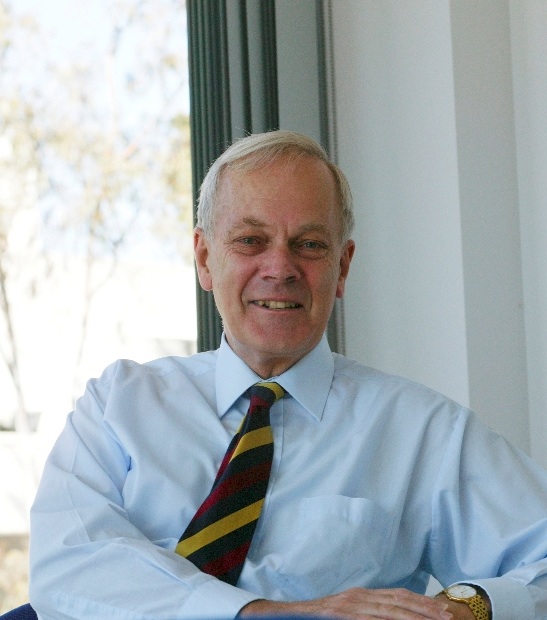 |
Brian D. O. Anderson
The Australian National University
|
|
|
| |
Professor Anderson was born in Sydney , Australia .
He took his undergraduate degrees in Mathematics and Electrical Engineering at Sydney University , and his doctoral degree in Electrical Engineering at Stanford University .
He worked in industry in the United States and at Stanford University before serving as Professor of Electrical Engineering at the University of Newcastle, Australia from 1967 through 1981. At that time, he took up a post as Professor and Head of the Department of Systems Engineering at the Australian National University in Canberra , where he was Director of the Research School of Information Sciences and Engineering from 1994 to 2002. For approximately one year to May 2003, he was the inaugural CEO of the newly formed National ICT Australia, established by the Australian Government through the Department of Communications, Information Technology and the Arts and the Australian Research Council under the Information and Communication Technologies Centre of Excellence program. From May 2003 to September 2006, he served as Chief Scientist of NICTA. He has held many visiting appointments in the United States , Europe and Asia, including the University of California , Berkeley , Stanford University, Swiss Federal Institute of Technology and Tokyo Institute of Technology.
Professor Anderson has served as a member of a number of government bodies, including the Australian Science and Technology Council and the Prime Minister's Science, Engineering and Innovation Council. From its initial public listing until 2005, he was also a member for ten years of the Board of Cochlear Limited, the world's major supplier of cochlear implants. He is a Fellow of the Australian Academy of Science and Academy of Technological Sciences and Engineering, the Institute of Electrical and Electronic Engineers, and an Honorary Fellow of the Institution of Engineers, Australia . In 1989, he became a Fellow of the Royal Society, London , and in 2002 a Foreign Associate of the US National Academy of Engineering. He holds honorary doctorates of the Catholic University of Louvain in Belgium , the Swiss Federal Institute of Technology, and the Universities of Sydney, Melbourne , New South Wales and Newcastle . He was appointed an Officer of the Order of Australia in 1993.
He was President of the International Federation of Automatic Control for the triennium 1990 to 1993, and served as President of the Australian Academy of Science for four years from 1998 to 2002.
His research interests have included many contributions in the area of circuits, signal processing and control, and currently his work focuses on distributed control of multiagent systems, sensor network localization, adaptive and nonlinear control.
----------------------------------------------------------------------------------------------------------------------------------------------
Control and information architectures for formations
Brian D. O. Anderson
Formations of robots, underwater vehicles and autonomous airborne vehicles are progressively being deployed to tackle problems of surveillance, bush fire control, and the like. Much formation behaviour mimics the behaviour of formations of living organisms, such as birds and fish.
A number of prototypical problems will be considered, starting with rendezvous and consensus. The presentation will consider the types of control, communications and sensing architecture that allow scalability for formations with many individual agents, and allow preservation of the formation shape, as well as merging, splitting, or closing ranks in the event of loss of one or more agents. The scalability requirement imposes a need for significant decentralization of information and control structures, and, just as in a formation of birds or fish, no one bird or fish can be expected to sense all other birds or fish and compute its own trajectory using even partial knowledge of the trajectories of all other individual birds or fish, so the amount of sensing, communication and control computation by any one agent has to be limited.
---------------------------------------------------------------------------------------------------------------------------------------------- |
| ------------------------------------------------------------------------------------------------ |
| ------------------------------------------------------------------------------------------------ |
| |
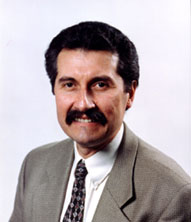 |
Theodore E. Djaferis
The University of Massachusetts Amherst
|
|
|
| |
Theodore E. Djaferis received the B.S. degree from the University of Massachusetts Amherst in 1974, and the M.S., E.E. and Ph.D. degrees from the Massachusetts Institute of Technology in 1977, 1978 and 1979 respectively. In 1979 he joined the Electrical and Computer Engineering Department of the University of Massachusetts at Amherst where he is currently a full professor and the Associate Dean of the College of Engineering . He is the author or co-author of more than one hundred technical publications in the area of systems and control and the author of the research monograph, Robust Control Design: A Polynomial Approach , published by Kluwer Academic Publishers in 1995. He is a co-editor of the research volume, System Theory: Modeling Analysis and Control , also published by Kluwer in 1999. He is also the author of a textbook for first-year engineering students with the title, Automatic Control: The Power of Feedback , published by PWS in 1998 (revised printing by Brooks/Cole in 1999). He is a three-time recipient of the Eta Kappa Nu Outstanding Professor Teaching Award in his Department, the recipient of a College of Engineering Outstanding Advisor Service Award in 1991 and the College Outstanding Teaching Award in 2001. He is a member of Eta Kappa Nu and Tau Beta Pi and a Fellow of the IEEE. He has been heavily involved in IEEE Control Systems Society professional activities and currently serves as President of the Society. |
|
| |
| |
----------------------------------------------------------------------------------------------------------------------------------------------
|
| |
Systems and Control Impact in a Changing World
Theodore E. Djaferis
The later half of the twentieth century can be characterized as a golden age for systems and control. A tremendous research effort led to the discovery of new knowledge that had a dramatic impact on the solution of many challenging engineering problems. We now face a new century and a new set of engineering problems many that lie at the boundaries of established fields. At the same time many technological innovations are constantly changing the landscape. This creates challenges as well as opportunities for systems and control research. The new century and global realities also create a new set of issues for engineering education. In the educational arena many questions are being raised as to how engineering education should be shaped in both structure and content to better address the needs of the 21 st century. Of course research and education are inextricably connected as past research developments shape the current engineering educational system and educational systems are in many ways crafted to facilitate research. It is a fact that systems and control educators have historically played a fundamental role in engineering education and we are now poised to take a leadership role in shaping it for the future. I believe that the systems and control community has an opportunity to have a much greater impact on research and education in the 21 st century. In this talk I discuss these issues from my personal perspective drawing from my experiences over the last thirty years.
|
|
| ---------------------------------------------------------------------------------------------------------------------------------------------- |
| ------------------------------------------------------------------------------------------------ |
| ------------------------------------------------------------------------------------------------ |
| |
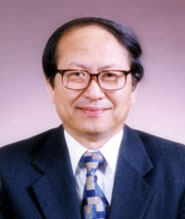 |
Kwon, Wook Hyun
Seoul National University
|
|
|
|
Wook Hyun Kwon received B.S. and M.S. degrees in electrical engineering from Seoul National University in 1966 and 1972, respectively, and a Ph D. degree from Brown University in 1975.
He was a research associate at Brown University (1975-1976), an adjunct assistant professor at the University of lowa (1976-1977). He has been with Seoul National University since 1977, where he is currently a professor of School of Electrical Engineering and Computer Science. He was a visiting assistant professor at Stanford University (1981-1982)
Dr. Kwon has published about 120 international journal papers and approximately 240 international conference papers, mostly in the areas of predictive controls, time-delayed system, FIR filtering, and real-time computer applications for automation. He authored a graduate text book, "Receding Horizon Control: Model Predictive Control for State Models" appeared in July, 2005 by Springer.
He received the National Academy of Sciences Award in 1997. He became a Fellow of the National Academy of Engineering of Korea (NAEK) in 1995 and a Fellow of the Korean Academy of Sciences and Technology (KAST) in 1996. He became a Fellow of IEEE in 1999 and a Fellow of TWAS (The Academy of Sciences for the Developing World) in 2001. He received the Brown University Engineering Alumni Medal (BEAM) award for outstanding achievements in 2003.
He was President of the Institute of Control, Automation and Systems Engineers (ICASE) of Korea in 1999, President of the Korean Institute of Electrical Engineers (KIEE) in 2001, and Vice-President of NAEK in 2002-2006..He was Chair of the Seoul National University Senate in 2005. He is now serving the International the Federation of Automatic Control (IFAC) as President since July, 2005 and the Korean Academy of Sciences and Technology (KAST) as Vice-President since 2007. |
|
| |
----------------------------------------------------------------------------------------------------------------------------------------------
|
| |
|
|
| ---------------------------------------------------------------------------------------------------------------------------------------------- |
| ------------------------------------------------------------------------------------------------ |
| ------------------------------------------------------------------------------------------------ |
| |
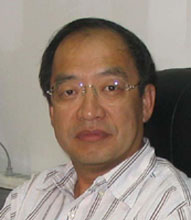 |
Tielong Shen
Sophia University, Tokyo, Japan
|
|
|
| |
Tielong Shen received the Ph.D. degree in Mechanical Engineering from Sophia University , Tokyo , Japan . From April 1992, he has been a faculty member of the Chair of Control Engineering in Department of Mechanical Engineering, Sophia University , where he currently serves as Associate Professor. Since 1996, he also served concurrently Professor of Yanshan University, Harbin Institute of Technology and “Luojia Xuezhe” Chair Professor of Wuhan University , China . His research interests include control theory and application in mechanical systems, power systems and automotive powertrain. In these area, he has authored/co-authored more 100 journal papers and 8 textbooks in Japanese, English and Chinese, respectively. From 1997, he has been serving as Chief Editor in Control Technique, Vice Chief Editor in Control Theory for the Transaction of SICE, Japan , and served as Guest Editor for International Journal on Robust and Nonlinear Control , during 2002-2003. Currently, he is Associate Editor for the IEEE Control System Society Conference Editorial Board , and is serving as Associate Editor of Journal of Control Theory and Applications , Guest Editor for Asian Journal of Control for special issue on New Trend in Automotive Powewrtrain Systems, and the Regional Editor Asia-Pacific for International Journal of Modeling, Identification and Control . He is now also serving as a member of the GB of Control Society of SICE, Chair of the Committee of SICE on Advanced Powertrain Control Theory, Member of Chinese Automation Society, and a member of the IEEE Technical Committee on Automotive Control. |
|
| |
| |
----------------------------------------------------------------------------------------------------------------------------------------------
|
| |
Analysis and Control of Discontinuous Dynamical Systems
Tielong Shen
Discontinuity in dynamical system is caused by natural phenomenon or control actions engineered by control design such static friction, contacting collision, switching and variable structure control et al. The dynamical systems with the discontinuities are usually described by the differential equations with disconti8nous right hade side. That is, the vector field defining the dynamical system may be a function which is discontinuous on the state or the time. For this kind of systems, to establish an analysis and synthesis framework, the most fundamental issue we must face is the notation of solution, and then the uniqueness and convergence. This talk will focus on these fundamental issues and on extending the basic results to control design. First, a brief review of the analysis of discontinuous dynamical systems will be addressed, and then the Filippov-framework for stability analysis of discontinuous systems will be surveyed shortly. Base on the fundamental results, two control design issues will be addressed. Finally, some challenging problems in control of mechanical systems and automotive powertrain systems with the discontinuous dynamical system theory will be introduced with physical background. |
|
| ---------------------------------------------------------------------------------------------------------------------------------------------- |
| ------------------------------------------------------------------------------------------------ |
| ------------------------------------------------------------------------------------------------ |
| |
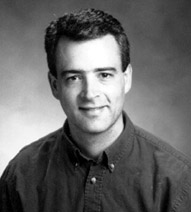 |
Andrew R. Teel
University of California
|
|
|
| |
Andrew R. Teel received his A.B. degree in Engineering Sciences from Dartmouth College in Hanover , New Hampshire , in 1987, and his M.S. and Ph.D. degrees in Electrical Engineering from the University of California , Berkeley , in 1989 and 1992, respectively. After receiving his Ph.D., Dr. Teel was a postdoctoral fellow at the Ecole des Mines de Paris in Fontainebleau , France . In September of 1992 he joined the faculty of the Electrical Engineering Department at the University of Minnesota where he was an assistant professor until September of 1997. In 1997, Dr. Teel joined the faculty of the Electrical and Computer Engineering Department at the University of California , Santa Barbara , where he is currently a professor. Professor Teel has received NSF Research Initiation and CAREER Awards, the 1998 IEEE Leon K. Kirchmayer Prize Paper Award, the 1998 George S. Axelby Outstanding Paper Award, and was the recipient of the first SIAM Control and Systems Theory Prize in 1998. He was also the recipient of the 1999 Donald P. Eckman Award and the 2001 O. Hugo Schuck Best Paper Award, both given by the American Automatic Control Council. He is a Fellow of the IEEE.
----------------------------------------------------------------------------------------------------------------------------------------------
Hybrid dynamical systems: robust stability and control
Andrew R. Teel
Hybrid dynamical systems are those with state variables that can both flow and jump. These systems have been studied in the literature for at least forty years, with a renewed intensity over the last two decades that correlates with the increasing prevalence of embedded control systems. In this talk we will discuss a modeling framework for hybrid dynamical systems that lends itself naturally to robustness properties, which are crucial for the development of successful hybrid control systems. This framework enables many classical stability analysis tools to be extended to the hybrid setting. An overview of these tools, including invariance principles, interconnection theorems, and converse Lyapunov theorems, will be presented. Then a variety of hybrid control design techniques that rely on these tools will be demonstrated. The applications of these techniques will include global stabilization of a multi-link pendulum, agent consensus problems on a circle, juggling of multiple bouncing balls, and extremum seeking by autonomous vehicles.
----------------------------------------------------------------------------------------------------------------------------------------------
|
|
| ------------------------------------------------------------------------------------------------ |
| ------------------------------------------------------------------------------------------------ |
|
吴家睿
University of Science and Technology of China
|
|
|
| Dr. Jia-Rui Wu graduated in Dept. of Biology of Zhongshan University in Guangzhou in 1982, received a master degree from Institute of Genetics of Chinese Academy of Sciences in Beijing in 1985 and a doctor degree from Swiss Federal Institute of Technology in Zurich in 1994. He was a postdoctoral fellow in Health Science Center of State University of New York from 1994-1997. Since then, he become a professor in Shanghai Institute of Biochemistry in Chinese Academy of Sciences in Shanghai . Now he is a vice-president of Shanghai Institutes for Biological Sciences, Chinese Academy of Sciences; the director of Department of Systems Biology, University of Science and Technology of China; and a vice-president of the Chinese Society of Biochemistry and Molecular Biology. Dr. Wu has been working on the area of the intracellular regulation network of cell proliferation, apoptosis and differentiation. Recently he put more efforts to promote the development of Systems Biology in China . In addition, he was awarded as a chief scientist in a 973 project “ Mechanism of Type 2 Diabetes Progression” in 2006. So far, he has published more than 40 research papers in international scientific journals, such as Science, Nature Genetics, EMBO J., and Mol. Cell. Biol. etc. |
|
----------------------------------------------------------------------------------------------------------------------------------------------
|
Systems Biology and Complex Diseases
Jiarui Wu
Systems biology is a newly born discipline in life science in 21 th century. It is also a new interdisciplinary frontier based mainly on the experimental biology, “omics”, computer science and mathematics. Technology of systems biology includes the platforms of “omics” such as genomics-platform and proteomics-platform as well as tools on computing and modeling. Moreover, the key feature for the systems biology is “Integration”. On one hand, it is the integration between small science (such as molecular biology and cell biology) and big science (omics). On the other hand, it is the integration between “wet” experiments and “dry” experiments. The power of systems biology is to analyze the complex biological systems and the complex diseases. It is well known that the complex diseases such as cancer and diabetes are the main killers to the human being. The causes of the initiation and development of the complex diseases involve genetic factors, environment factors and the interaction of these two kinds of factors. Furthermore, more and more studies have shown that the gene and protein networks play important roles for the mechanisms of the complex diseases. Therefore, it is clear that the classical experimental biology that focuses on single gene or protein is not enough to reveal the molecular mechanisms of complex diseases, whereas the methodology and technique of system biology are very fit to study such problems.
|
| ------------------------------------------------------------------------------------------------ |
|